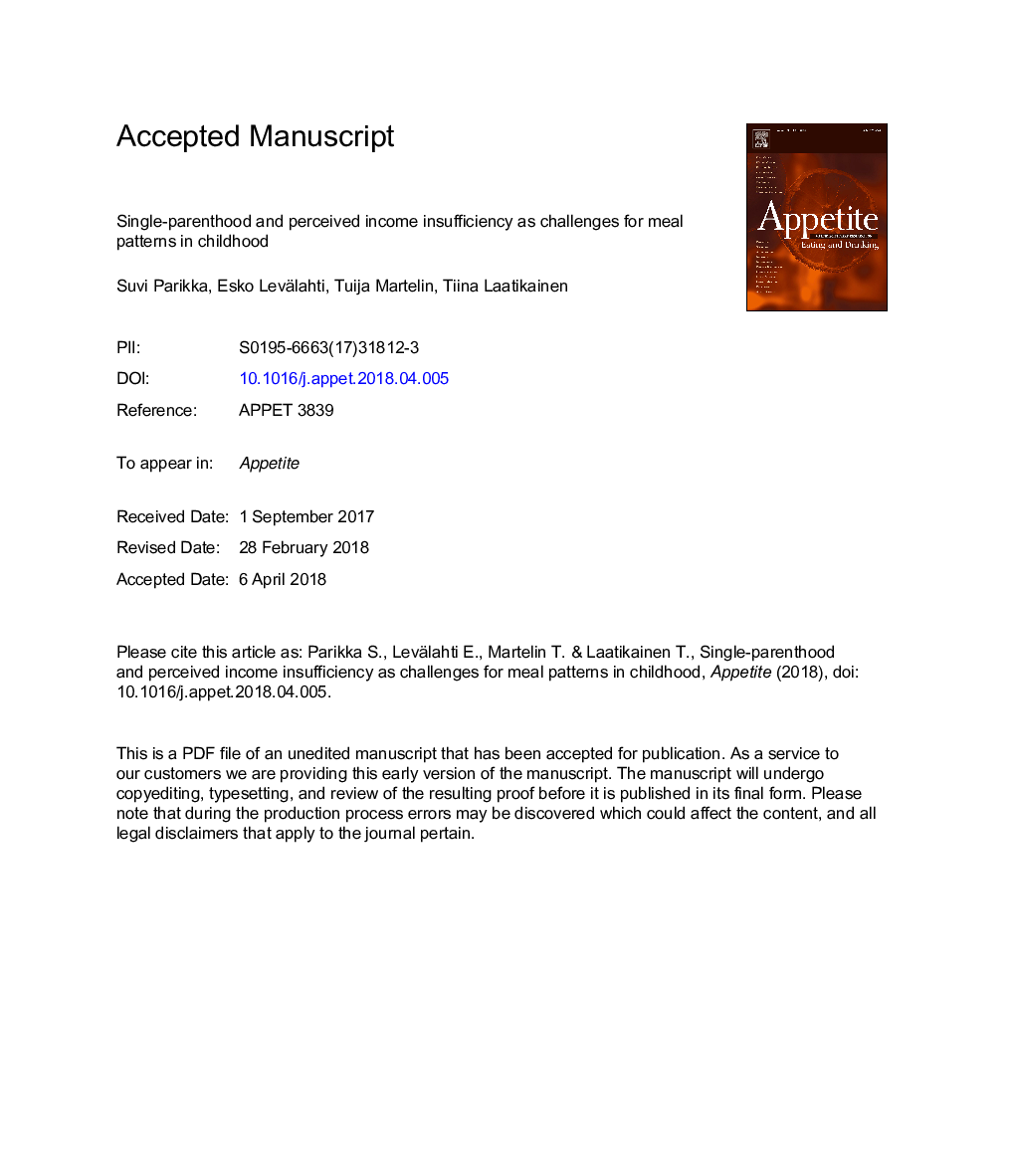| کد مقاله | کد نشریه | سال انتشار | مقاله انگلیسی | نسخه تمام متن |
|---|---|---|---|---|
| 7305447 | 1475353 | 2018 | 31 صفحه PDF | دانلود رایگان |
عنوان انگلیسی مقاله ISI
Single-parenthood and perceived income insufficiency as challenges for meal patterns in childhood
ترجمه فارسی عنوان
تنها والدین و نارسایی درآمد درک شده به عنوان چالش برای الگوهای غذا در دوران کودکی
دانلود مقاله + سفارش ترجمه
دانلود مقاله ISI انگلیسی
رایگان برای ایرانیان
کلمات کلیدی
فرزندان، الگوهای غذا، موقعیت اجتماعی اجتماعی اقتصادی نوع خانواده، تحلیل مسیر،
موضوعات مرتبط
علوم زیستی و بیوفناوری
علوم کشاورزی و بیولوژیک
دانش تغذیه
چکیده انگلیسی
Family is an important setting for development of eating behaviour in childhood. The aim of this study was to investigate associations and direct and indirect pathways between family socioeconomic position (SEP) factors, family type and meal patterns in childhood on weekdays (4-6 meals a day, breakfast skipping, and family dinner). The cross-sectional LATE study was carried out in Finland in 2007-2009. Our dataset comprised 2864 school-aged children (aged ca 7-16 years). Associations between parental BMI, education, labor market status, perceived income sufficiency, family type and childhood meal patterns were first examined by bivariate and multivariate regression analyses separately for children (aged 7-11 years; Nâ¯=â¯1920) and adolescents (14-16 years; Nâ¯=â¯944). To identify direct and indirect pathways between SEP factors, family type and the three meal pattern variables path analysis was performed. The present study showed that family resources in terms of family type and perceived income sufficiency seemed important in meal patterns in childhood. On the other hand the previously reported strong associations between parental education and meal patterns seemed to a large extend to be mediated through family type. Both children and adolescents living in families experiencing income insufficiency had an increased risk of skipping breakfast and not eating the recommended 4-6 meals a day. Family type and especially single-parenthood was associated with breakfast skipping and fewer family dinners in both age groups and with not-recommended meal frequency among children (7-11â¯y), respectively. This study showed that there are socioeconomic and family type inequalities in meal patterns in childhood and they are more pronounced during childhood compared with adolescence.
ناشر
Database: Elsevier - ScienceDirect (ساینس دایرکت)
Journal: Appetite - Volume 127, 1 August 2018, Pages 10-20
Journal: Appetite - Volume 127, 1 August 2018, Pages 10-20
نویسندگان
Suvi Parikka, Esko Levälahti, Tuija Martelin, Tiina Laatikainen,
